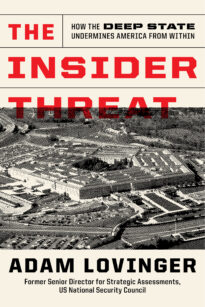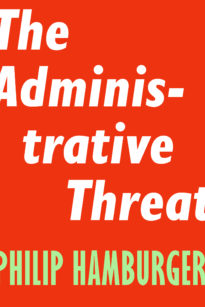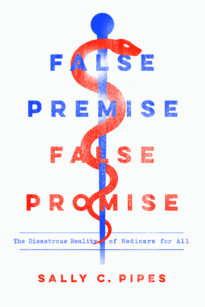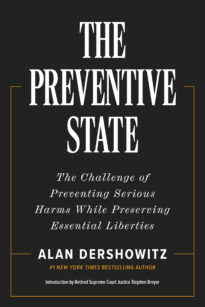If reliable but uncertain intelligence predicted a mass casualty terrorist attack and indicated likely suspects, what preventive actions would be constitutionally authorized? Detention? Interrogation? Torture? What if the attack involved a weaponized virus? Should the government compel widespread inoculation that might kill hundreds of people while saving millions? What if an article describing how to circumvent the inoculation mandate was about to be published? Should censorship of the article be authorized?
These are the sorts of questions Alan Dershowitz has been asking for more than 60 years, in his teaching, writing, and litigation. Now, at age 86, he has written his magnum opus. In it, he suggests an overarching jurisprudential framework that would set limits to the ballooning power of what he calls “the preventive state.”
This important book offers unprecedented insights into one of the most underexamined developments of our age: the growing magnitude and frequency of cataclysmic threats, coupled with the increasingly effective—but increasingly intrusive—tools intended to predict and prevent them.
Dershowitz responds to the urgent need for a jurisprudence that provides balance and accountability as both dangers and preventive capabilities increase, threatening our security and our liberties. This masterful analysis should be read by everyone who cares about security, liberty, and democracy.














